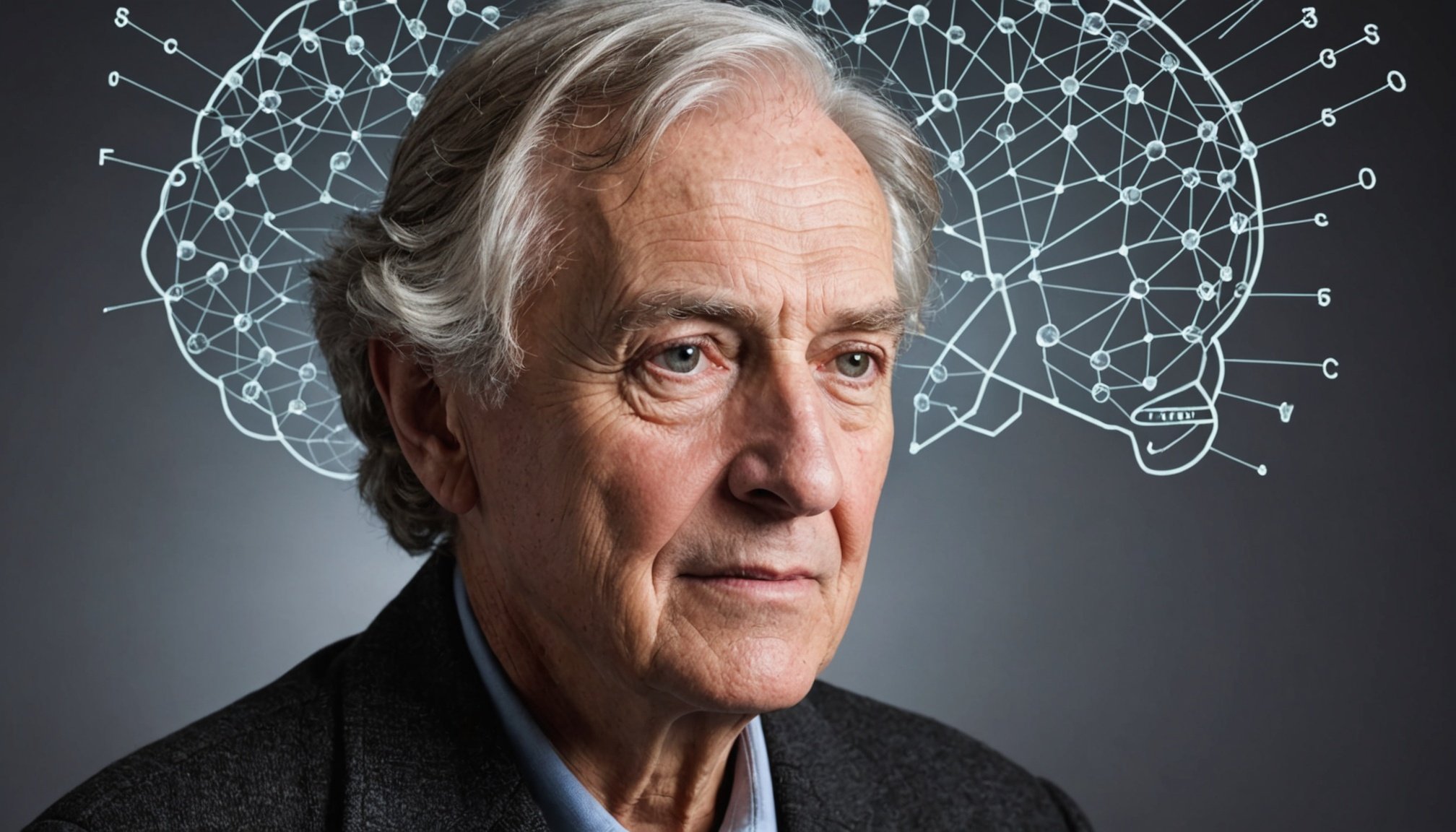Enhancing Mental Clarity: Proven Techniques for Boosting Cognitive Function in Older Adults
As we age, maintaining cognitive function and mental clarity becomes increasingly important. Cognitive decline, which can lead to conditions such as dementia and Alzheimer’s disease, is a significant concern for older adults. However, there are several proven techniques that can help boost cognitive function, improve brain health, and enhance overall mental well-being.
The Importance of Cognitive Training
Cognitive training is a crucial aspect of maintaining cognitive health in older adults. Just as physical exercise strengthens the body, cognitive exercises can strengthen the brain, improving memory, problem-solving skills, and overall cognitive function.
Also to discover : What are the benefits of cold exposure therapy, and how can it be safely practiced for health advantages?
Brain Exercises for Seniors
Engaging in brain exercises such as puzzles, memory games, and trivia can stimulate the hippocampus, the region of the brain responsible for memory formation. These activities enhance both short-term and long-term memory recall and promote neural plasticity, the brain’s ability to reorganize and form new neural connections.
Here are some examples of brain exercises that seniors can incorporate into their daily routines:
Also read : What are the long-term benefits of regular cardiovascular exercise on heart health and overall fitness?
- Word Games: Crossword puzzles, Scrabble, and word searches challenge vocabulary, spelling, and problem-solving skills.
- Artistic Activities: Painting, drawing, or crafting stimulates different areas of the brain, encouraging problem-solving, spatial awareness, and fine motor skills.
- Memory Games: Card-matching games or memory recall exercises improve short-term memory, attention to detail, and concentration.
- Learning a New Language: Using classes, apps, or online resources to learn a new language enhances cognitive abilities, improves memory, and provides a sense of accomplishment.
Combining Cognitive and Physical Training
Recent studies have highlighted the benefits of combining cognitive training with physical activity, a method known as brain endurance training (BET).
Brain Endurance Training (BET)
BET, originally developed for athletes, has been shown to improve both cognitive and physical abilities in older adults. A study published in Psychology of Sport and Exercise found that BET improved attention, executive function, physical endurance, and resistance exercise performance in healthy sedentary women aged 65-78. The training involved 20 minutes of cognitive tasks followed by 45 minutes of exercise sessions, including resistance and endurance training.
Here is a comparison of the outcomes between the BET group and the exercise-only group:
| Group | Cognitive Performance Improvement | Physical Performance Improvement |
|---|---|---|
| BET | 7.8% | 29.9% |
| Exercise-only | 4.5% | 22.4% |
Professor Chris Ring, the corresponding author of the study, noted, “BET could be an effective intervention to improve cognitive and physical performance in older adults, even when fatigued. This could have significant implications for improving health span in this population, including reducing the risk of falls and accidents.”
The Role of Daily Routines and Physical Activity
Establishing and adhering to daily routines is vital for maintaining mental stability and cognitive health in older adults.
Daily Routines and Physical Activity
Daily routines provide structure, predictability, and a sense of purpose, reducing feelings of anxiety and uncertainty. Incorporating physical activity into these routines is equally important. Breaking up sedentary time with short walks, light exercises, or household chores can significantly improve cognitive function and emotional health.
Here are some ways to incorporate physical activity into daily routines:
- Short Walks: Regular short walks can improve memory, focus, and overall brain health.
- Light Exercises: Activities like gentle yoga or swimming promote physical health and cognitive function.
- Household Chores: Engaging in light household chores can provide a cognitive workout and promote independence in daily living skills.
Enhancing Memory Performance with Reminders
Memory loss is a common age-related issue, but using reminders can significantly improve memory performance.
The Power of Reminders
A study from the University of Texas at Arlington found that setting reminders can eliminate some age-related declines in memory, particularly in prospective memory tasks such as remembering to take medication or attend appointments. The study showed that older adults benefited equally from using reminders under both low and high memory load conditions, suggesting that reminders can reduce cognitive strain by making memory retrieval less reliant on internal memory processes.
Here are some practical ways to use reminders:
- Digital Reminders: Use smartphones or tablets to set reminders for daily tasks.
- Calendar Use: Write down appointments and tasks on a calendar.
- Alarms: Set alarms for medication times or other important tasks.
Building Emotional Resilience
Emotional resilience is crucial for maintaining mental health and cognitive function in older adults.
Strategies for Emotional Resilience
Building strong social networks, maintaining self-esteem, and fostering a sense of control are key strategies for emotional resilience. Engaging in activities such as group therapy, pet therapy, and mental wellness programs can boost self-esteem and provide a sense of belonging and emotional stability.
Here are some strategies to build emotional resilience:
- Social Support Networks: Engage in social activities and maintain robust social connections.
- Self-Esteem: Participate in activities that promote self-expression, such as art and music therapy.
- Sense of Control: Practice mindfulness exercises and sleep hygiene practices to enhance autonomy.
Nutrition and Mental Health
Proper nutrition plays a significant role in supporting mental well-being and cognitive function in older adults.
The Impact of Nutrition
A healthy, well-balanced diet can enhance cognitive function, increase alertness, and improve concentration and attention span. Conversely, an inadequate diet can lead to fatigue, impaired decision-making, and slowed reaction time, exacerbating stress and depression.
Here is a table highlighting the impact of nutrition on mental health:
| Nutritional Element | Impact on Mental Health |
|---|---|
| Healthy Fats | Supports brain health, improves cognitive function |
| Protein | Essential for neurotransmitter production, improves mood and cognitive function |
| Complex Carbohydrates | Provides sustained energy, supports healthy blood sugar levels |
| Vitamins and Minerals | B vitamins, vitamin D, and omega-3 fatty acids support cognitive health and mood regulation |
Practical Advice and Conclusion
Maintaining cognitive function and mental clarity in older adults requires a multifaceted approach that includes cognitive training, physical activity, daily routines, reminders, emotional resilience, and proper nutrition.
Putting it All Together
- Engage in Brain Exercises: Incorporate puzzles, memory games, and other cognitive activities into your daily routine.
- Combine Cognitive and Physical Training: Consider brain endurance training or similar programs that combine mental and physical exercises.
- Establish Daily Routines: Include physical activity and social interactions in your daily schedule.
- Use Reminders: Utilize digital reminders, calendars, and alarms to support memory performance.
- Build Emotional Resilience: Focus on social support networks, self-esteem, and a sense of control.
- Eat a Balanced Diet: Ensure your diet includes healthy fats, protein, complex carbohydrates, and essential vitamins and minerals.
By adopting these strategies, older adults can significantly enhance their cognitive function, reduce the risk of cognitive decline and dementia, and maintain a healthy and fulfilling lifestyle.
As Professor Chris Ring emphasized, “BET is an effective countermeasure against mental fatigue and its detrimental effects on performance in older adults.” By combining these techniques, older adults can navigate the challenges of aging with greater ease, resilience, and mental clarity.











